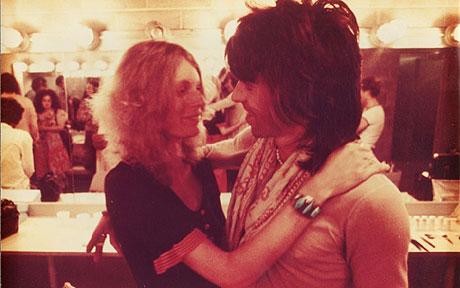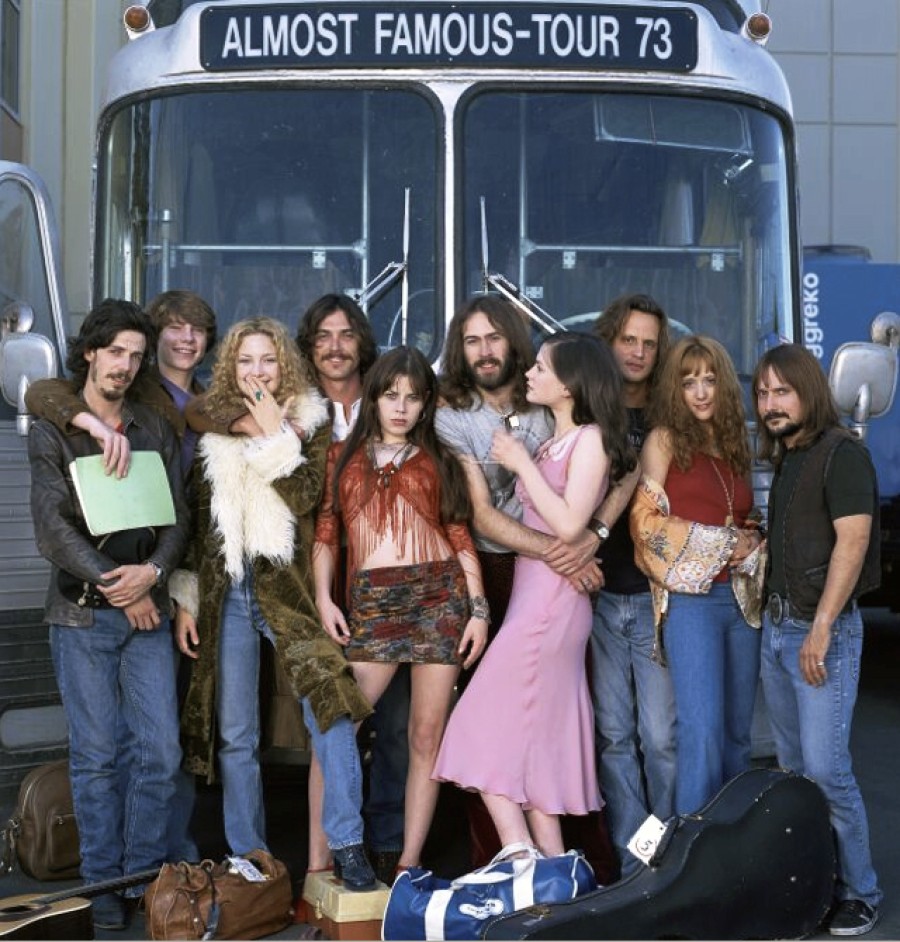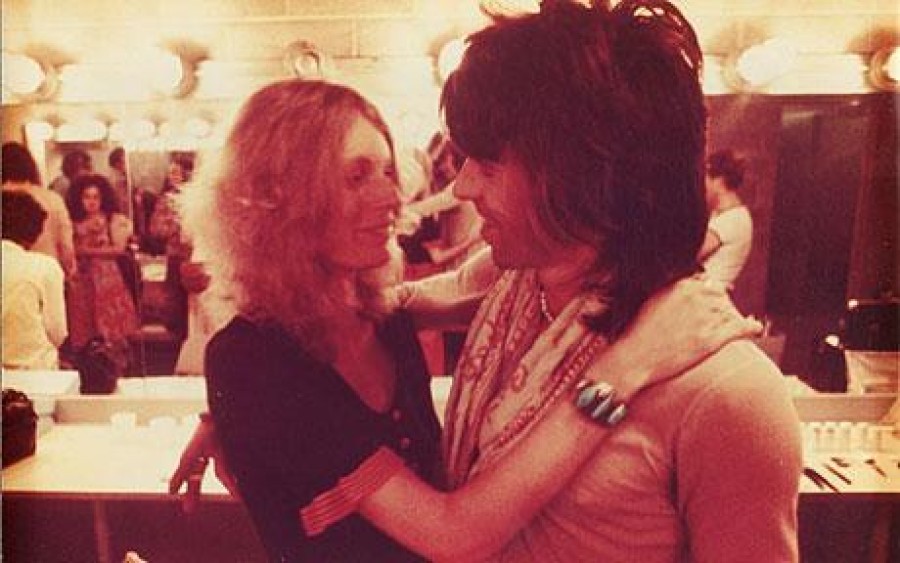Groupies, past and present: the muses behind the music
By Leah Pickett
Still from Almost Famous, starring Kate Hudson. Almost Famous/Cameron Crowe
1
/ 3

Still from Almost Famous, starring Kate Hudson. Almost Famous/Cameron Crowe
1
/ 3
Groupies, past and present: the muses behind the music
By Leah Pickett
WBEZ brings you fact-based news and information.
Sign up for our newsletters
to stay up to date on the stories that matter.

In a pivotal early scene from Cameron Crowe’s autobiographical ’70s rock film Almost Famous, Crowe’s teenage alter-ego William (Patrick Fugit) is approached by a group of nubile young women lingering outside of a concert venue. Their leader is Penny Lane, played by the free-spirited, gold-ringleted Kate Hudson as the original Manic Pixie Dream Girl.
“We are not groupies,” she assures young William, just in case he had the wrong idea, “Groupies sleep with rockstars because they want to be near someone famous. We are here because of the music, we inspire the music. We are Band Aids.”
Indeed, this was the mindset of many rock ‘n’ roll groupies throughout the ’60s and ’70s; allegiance to their favorite bands was more about giving themselves completely to the music—mind, heart and soul— rather than just exploiting their bodies for sex. And although Bill Wyman of the Rolling Stones is credited with coining the term “groupie” in 1965 to describe the tally of female fans he ravished while on tour, the general definiton is not overtly sexual: just “a fan of a rock group, who usually follows the group around on concert tours.” A superfan, if you will, who by this token could also be a man or a woman.
So, when did “groupie” become such a dirty word? Plenty of young people follow their favorite bands around the country in hopes of meeting them (and yes, possibly sleeping with them as well) but refuse to call themselves groupies or even Penny Lane-esque “Band Aids” for fear of slut-shaming. No groupie girl wants to end up like Nancy Spungen, but the insatiable desire to fall in love with the music and the musician at once is certainly tempting, and practically universal.

In her provocative 1987 memoir I’m With the Band: Confessions of a Groupie, former groupie Pamela Des Barres recounts a life full of glamour and fun (she even started a “groupie group” called the GTOs in the 1960s), while also acknowledging the darker side. For example: the emergence of “groupie babies” in the 1970s, as rock stars like David Bowie and Mick Jagger began regularly bedding girls as young as 13.
Of course, promiscious and often illegal sexual encounters still run troubingly rampant in rock star culture today; but in the Internet age, groupies actually have more power to protect themselves than ever before. Superfans can share their experiences via online forums, cautioning others about STDs or specific jerks/abusers/predators to avoid. A level-headed approach to the groupie lifestyle is also key: being a free spirit is one thing, expecting a famous musician to leave his girlfriend for you is another.
If a devoted superfan is of age, confident in herself, sex-positive yet also cautious and aware of all the potential consequences of a one night stand, then she should feel no shame in sleeping with anyone, let alone her favorite singer or guitarist. Instead of slut-shaming these women, modern day groupies (or whatever label or non-label they may choose to describe themselves) should support one another in owning their desires, since the decision to sleep with a rock star does not automatically cancel one’s membership as a card-carrying feminist, nor is it always in direct opposition to feminist ideals.
“Free love” is now “Y.O.L.O,” but the sentiment remains the same. Obviously, safety and self-care come first; but if the once-in-a-lifetime opportunity arises to rub shoulders with your favorite band or artist, why not allow yourself to experience it? The encounter may only last for one night—or, a la Almost Famous, an entire unforgettable summer—but at least you’ll be able to tell your grandchildren some amazing stories one day; and, best case scenario, look back on your life with no regrets.
Leah Pickett is a pop culture writer for WBEZ and co-host of Changing Channels, a podcast about the future of television. Follow her on Twitter, Facebook and Tumblr.

